Introduction
Anyone who has collaborated with clients will know that it can get challenging at times. Clients come from varied backgrounds and mindsets. Working with them and achieving splendid results requires a certain level of maturity and patience.
Axelerant specializes in several service areas, having valued clients in each of them. As several have testified, many of our clients soon become longstanding partners.
One of the main reasons why that happens is our team members' expertise and general conduct. They act as the glue that binds Axelerant with its clients, solidifying further with time.
This is the story of Swarad Mokal - one such exemplary Axelerant team member.
Meet Swarad Mokal
Swarad started his career as a software engineer more than 11 years ago. Over the years, he has built up a versatile portfolio, managing positions in engineering management, pre-sales, delivery, DevOps, etc. For the past four years, he has been engineering Frontend solutions for enterprise clients as a Frontend Staff Engineer at Axelerant.
In early 2021, I saw Swarad sharing a stunning image of the Louvre Museum from his tour in Paris, France, on Axelerant's travel Slack channel. "My wife had a work assignment there, and there was a chance I could accompany her for a month-long journey," he shared. Axelerant's remote, flexible work culture allowed Swarad to accompany his wife to France.
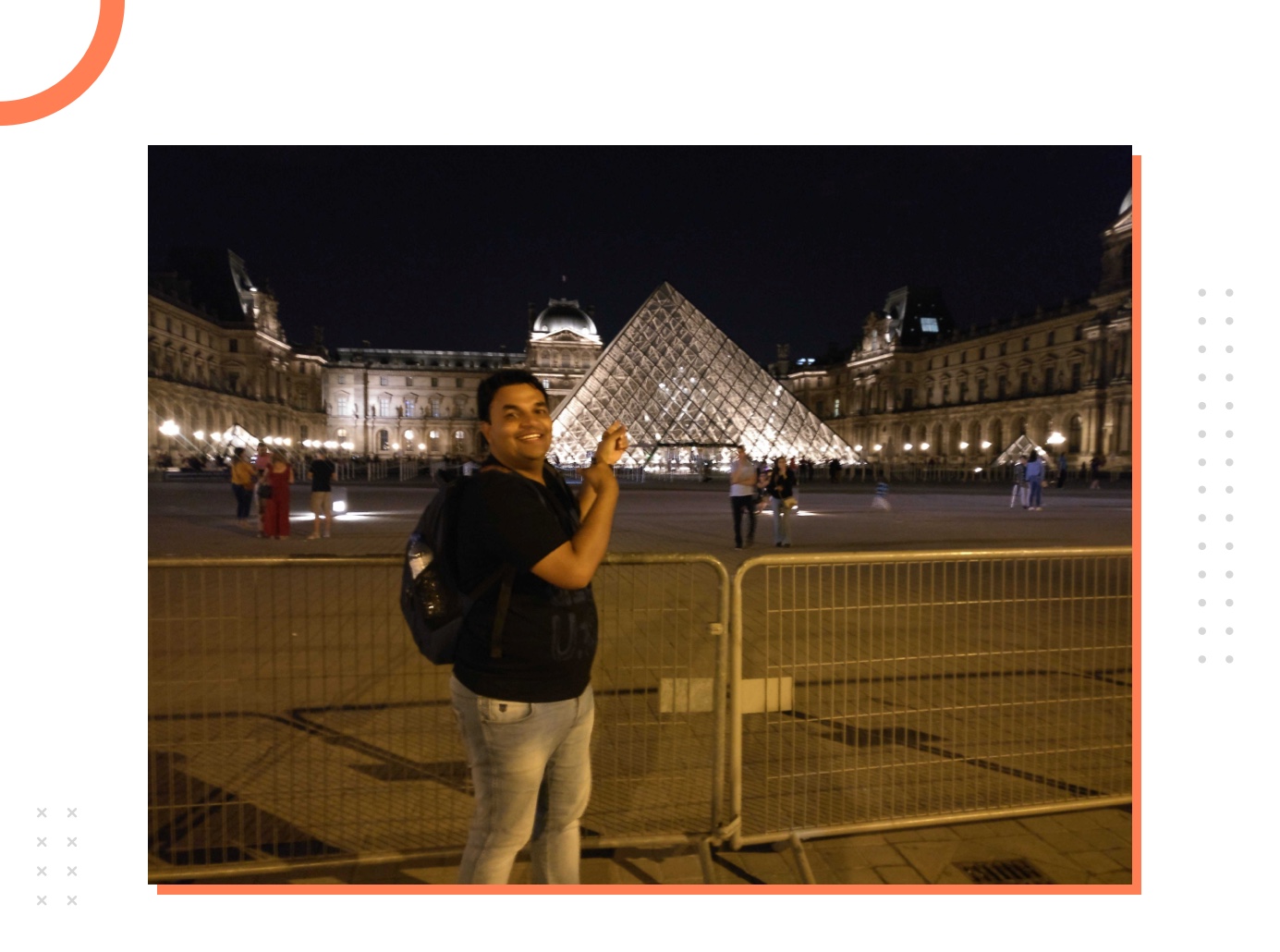
“I was able to travel with my better half, roam the streets of Paris, and still manage to get my work done,” said Swarad.
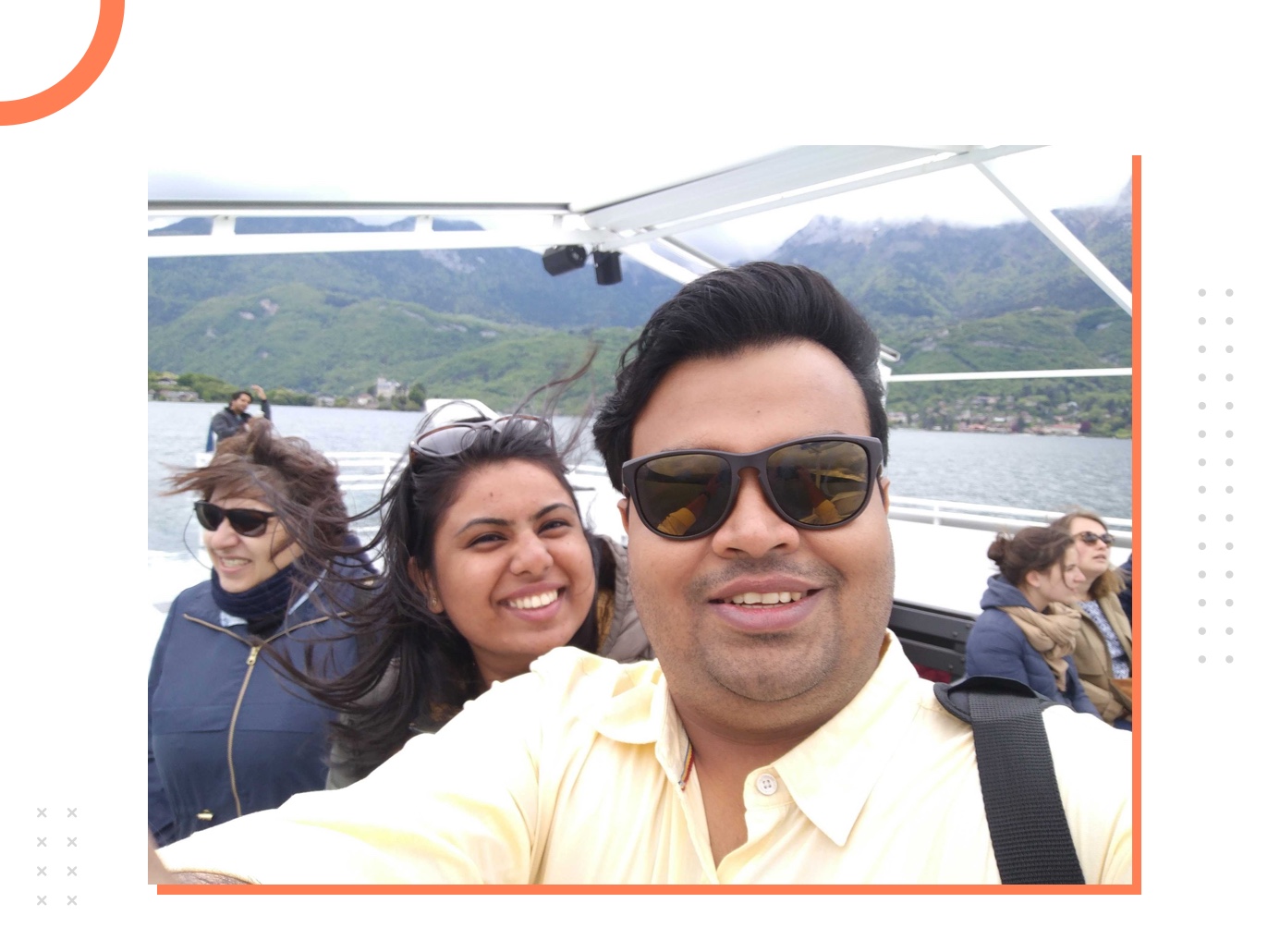
Joining in from his home in Alibag —a small, well-known coastal town in Maharashtra— Swarad and I began chatting about his experience working with a long-time Axelerant client.
Before He Joined Axelerant
Swarad worked in a Mumbai-based tech firm before joining Axelerant. He used to live in the city at the time before the pandemic hit in early 2020. Even then, he was heavily involved in the Mumbai Drupal community. "We had a good rapport with many Drupal shops in and around Mumbai. Earlier, there wasn't a separate Pune Drupal community. So, Pune and Mumbai was just a single Mumbai Drupal community," Swarad recalled.
Unlike working remotely in Axelerant, he worked out of an office at his previous firm, which meant commuting for approximately four hours every day through Mumbai traffic. Sometimes, it would take him almost the same time just to reach the office during the rainy season.
But it being a US-based firm, he was fortunate to have the liberty to work from home some days in a month, which often meant having meetings late at night or yawningly early in the morning.
He Was Curious From The Sidelines
His engagement in the Drupal community brought him closer to Axelerant team members, first virtually and then in real life. "I think it was in 2011 that Dries [Drupal's founder] came to Mumbai for the first time. Because he was coming, we organized a Drupal camp, and at that time, you got to know other Drupal companies in the country," Swarad said. It was the first time he met Axelerant team members, who were only faceless usernames on Drupal.org before that event.
After the first Drupal camp, the local Drupal community started growing organically. "I think Axelerant had a significant presence in the Bangalore community then," Swarad recalled. In the subsequent monthly meetups, he became increasingly familiar with Axelerant team members. "I got to know more about Axelerant from Drupal camps and interacting with Axelerant team members at these events," said Swarad.
The more he got acquainted, the greater became his curiosity to learn how a fully remote company like Axelerant worked.
Until Eventually, Swarad Joined Axelerant
It was only a matter of time that he switched to becoming a full-time Axelerant team member. Initially, what attracted him the most was the prospect of permanently working remotely. And he is certainly not alone in wanting to do that.
Several international studies and surveys have discovered that most people working from home do not want to relinquish this benefit. This attraction has numerous reasons, such as:
- Spending more time with family and friends
- Re-engaging and experimenting with hobbies
- Designing a workday flexibly, accommodating personal priorities
The benefits are many. But one needs to remember that all of these are only possible when you have an understanding team and well-organized, well-established systems in place at work.
"Remote work is not just working from anywhere, which you do routinely like once or twice a week. This is not that. You need to know what tools and programs to use, continuously build teams, engage with people 365 days a year," he explained.
And He Landed His First Project
Swarad joined Axelerant in early 2017 as a Backend engineer. He immediately became a new member of the team working with a Middle Eastern MNC on a website launch.
It was Axelerant's first project with the client, and the launch was just three to four months away. Suffice to say, the pressure was slowly building up.
Yet, something unexpected happened, ushering in significant changes for Swarad. "Out of six or seven Frontend engineers that we had [from Axelerant and other companies], almost everybody faced some impromptu emergencies because of which they had to take long leaves," Swarad recalled.
Had all the engineers been from a single company, things could've been managed better. You may wonder why Axelerant allowed its Frontend team members to go on leave.
In Axelerant, everyone is encouraged to take breaks as and when required. Even in emergencies like these, managers try to look for other solutions without stopping team members from taking a break.
Turning The Direction Of His Career
The situation called upon the leadership to make drastic and quick decisions that required people to step up. And step up was what Swarad did. In his previous organization, he had the experience of working in both Frontend and Backend, as clients generally preferred to hire single engineers for projects.
"I think it was Ankur [Axelerant CEO] who asked me, 'Will you be able to do Frontend?'" Swarad remembered. He replied with openness (as is our core value): "I can do it, but I have to clarify that for the past two to three years, I haven't done this."
The shift certainly wasn't easy. Swarad had to pay extra attention and effort to slowly, steadily blossom into the new role. The need of the hour was equally challenging and exciting for him. He was always intrigued to try out Frontend full-time, never having the chance to try out his hand before.
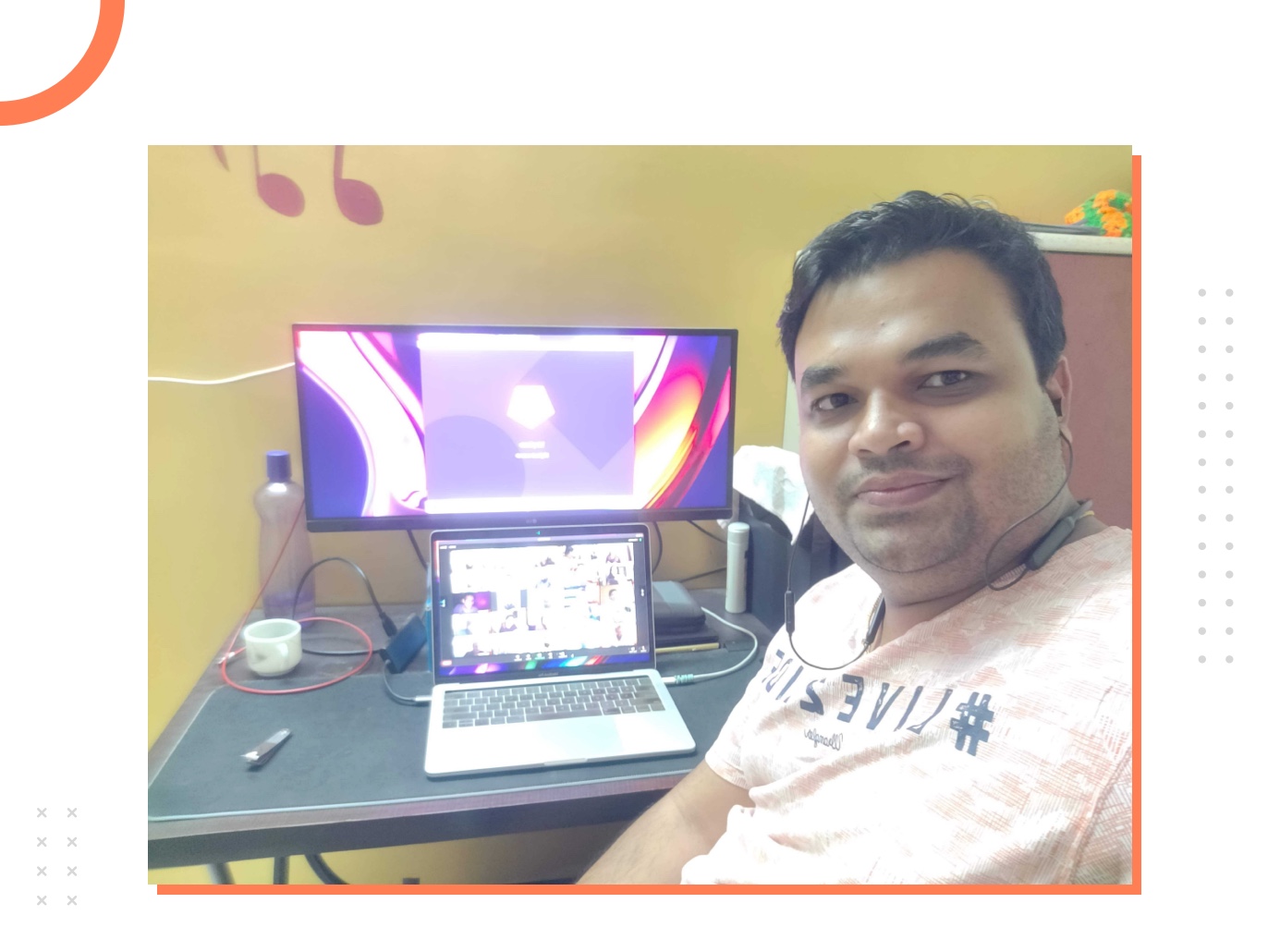
At Axelerant, he got the opportunity and the necessary support from his team.
"They asked me to try it. There was always the option to work in the Backend if things didn't work out," Swarad said. He poured through materials that gave him a deeper understanding of the domain. Whatever he learned, he would directly apply it in his work.
"You have to understand this was not happening in a scenario where I had time. Because the launch was near, I had to keep in mind that I wasn't taking more time than what was needed." At first, the motivation was to get up to speed with the pace of the project. But soon, Swarad realized that he was pretty good at it. "After a while, because I got involved in so many critical things, my Frontend skills mattered more than my Backend skills," he chuckled at the thought.
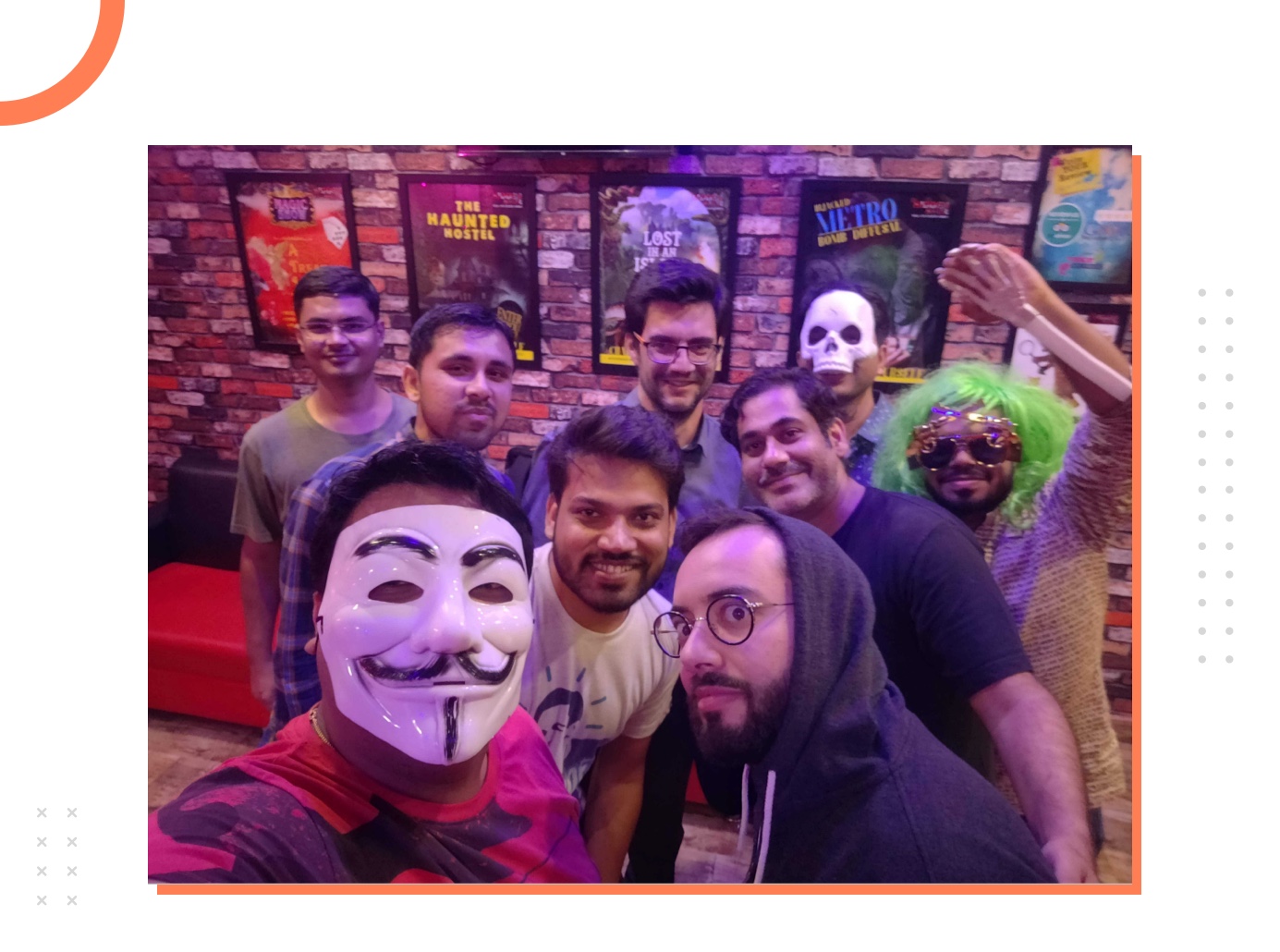
But There Were Challenges Waiting
"After the launch of the first site, I never felt like I don't know anything," Swarad recalled. I was curious how he got along with everyone on the team and the clients after making the shift. But to my surprise, things were pretty smooth between them. "I think I got along very well. It didn't feel like someone new was joining [in my case]. I was already doing work related to the Backend. So I was familiar with the code, and they were familiar with my working style."
He soon became a permanent member of the team, continuing to work for years on the project. But of course, with time, the challenges of being engaged with a longstanding client became evident to him.
Like Grappling With Repetitiveness
At the start of a long-term project, everyone is high on enthusiasm. There are new ideas, challenges, people, and everything seems exciting. But with time, gradually, this energy fizzles out when the tasks get repetitive.
The same thing happened with Swarad. "There is a time when you feel that you are doing something that you did two months ago. It's more like you're doing the same repetitive work," Swarad shared.
Like most software engineers, he looked forward to challenges at work. Though there were gusty phases of creative innovations, he realized that it was unrealistic for a long-term project to be exciting all the time.
According to a study published by Udemy, 43 percent of workers report feeling bored at work. In an interview with Harvard Business Review, Patty McCord expressed something similar from her experience of being the Chief Talent Officer of Netflix for 12 years. According to her, people in the tech sector are particularly prone to feeling bored or burned out.
Tackling The Time Difference
Swarad's project consists of people from multiple countries and continents. Specializing in Drupal, Axelerant focuses on tasks related to the domain for the client. However, many teams are involved in the project, dealing with different facets and technologies like Magento.
"We had India-Kuwait-Europe, three time zones. Then we also had to factor in that Friday is a holiday in MENA [the Middle East and North Africa] countries. So the overlap with the client team was only four days if we factor that Saturday-Sunday was off for us."
Such a vast time difference called for effective, well-planned communication between all parties. One missed message could mean a considerable delay in the workflow.
Maintaining A Work-Life Balance
Some people find remote work smooth and enriching, and some don't. The difference, you might assume, lies in some secret trick available to a selected few. But there's no such trick.
Thriving in a remote work setting requires balance and routine.
Some people find it easier to focus during the night; others in the late evening. We all have time pockets of high productivity spread across the day. Recognizing and utilizing these periods can facilitate work through increased focus. If you're like Swarad, who likes to go cycling around 20 kilometers every day, or tinker with parts of his automobiles to keep them running smoothly, having a work-life balance is a must.
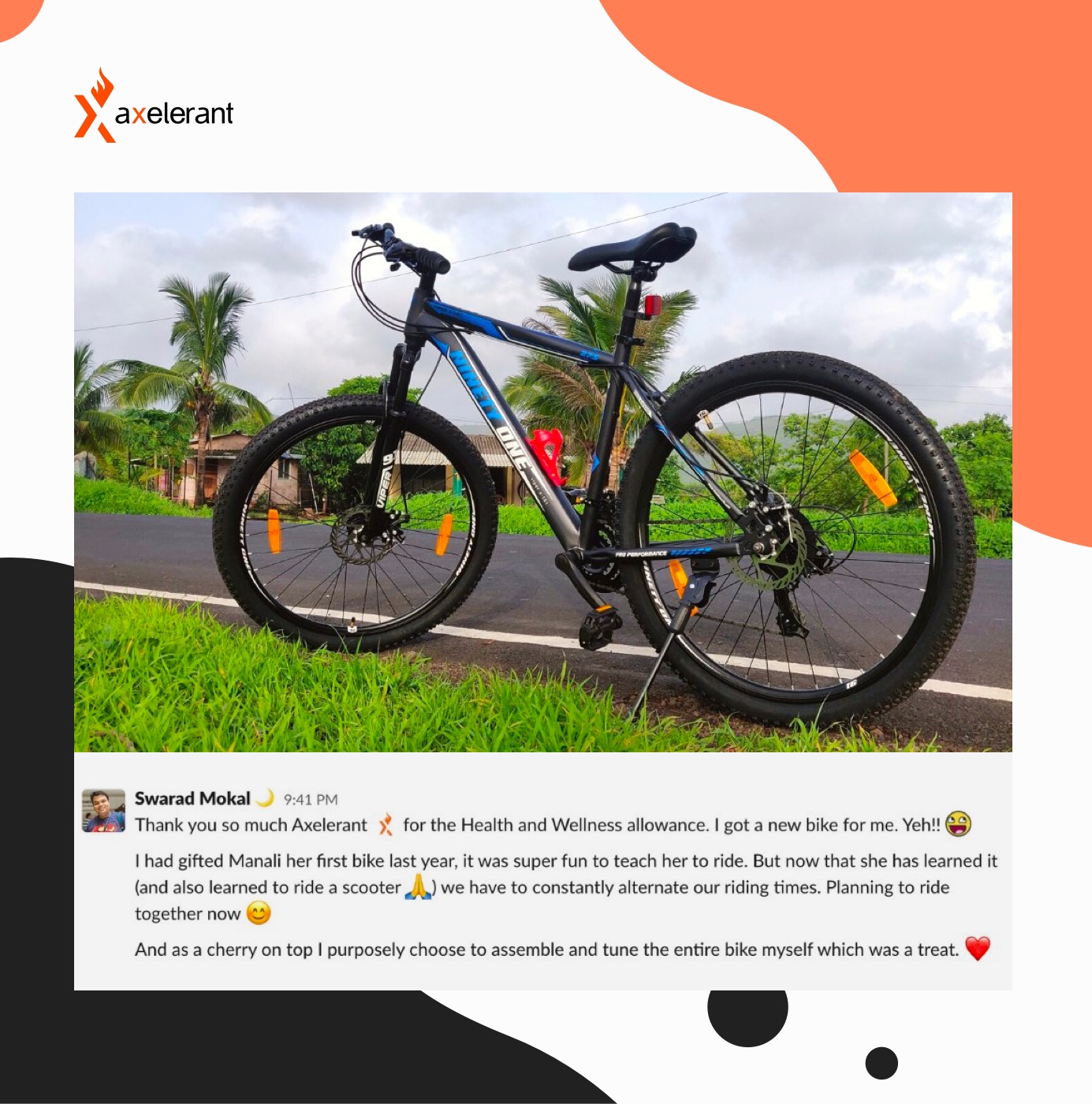
Even when you have a well-organized routine, there's always the matter of client expectations. "Initially, there were days when it was just tough. There were unrealistic deadlines and expectations from clients. I remember during the first few months or so, many of us worked 50 to 60 hours per week," Swarad shared.
Building Trust
Trust plays a significant part in ensuring success in any project that involves teams. A remote team that works across continents and time zones would need to build trust — fast. Axelerant prides itself on not just delivering superior products but also on the overall working experience.
Swarad and his team were fully aware that it was not just about providing products and solutions. "We had to be more than just another vendor," said Swarad.
And He Maneuvered Through Them
With challenges comes the scope to soar higher as you keep tackling them one by one. When faced with difficulties that you're unable to solve alone, you have the opportunity to seek help.
Here's how Swarad addressed the challenges he was facing in his project.
With Communication and Openness
One of the fundamental things one can do to overcome a challenge is communicate about it to peers. The problems of working with a team spread across time zones, and leaping from one service area to another in the hour of need, required a lot of timely open communication.
When Swarad first transferred from Backend to Frontend at the initial stage in the project, he stuck to the Axelerant core value of "Openness" by regularly communicating all the issues he was facing to his team members.

"I remember a meeting with one of the managers and TAs [technical architect] at the time. I told them up front, 'I know I can do Frontend, but if you feel that I am not being productive, feel free to just tell me.' I was very clear from the start to the people who oversaw my work."
He kept a direct communication window open at all times by asking his peers whether he was taking more time than required and if he was proceeding correctly whenever in doubt. This facilitated direct feedback from Swarad's stakeholders, helping him improve regularly.
By Being Proactive
A year-after-year project is like a marathon. There are moments when one needs to pick up speed, and there are areas where it's just a matter of maintaining a steady pace.
To overcome the repetitive stretches, Swarad and his team resorted to proactivity. They brainstormed, came up with exciting ideas for new products or features, and developed prototypes to present to the client. This approach was well-received by the clients as well, as they saw the improvements. It kickstarted a working relationship based on enthusiasm, where one is not fearful of trying new things.
With time, this enthusiastic approach increased trust between the Axelerant and client team members.
"As time went by, we gave them good feedback in terms of UI/UIX of what to do and what not to do, and they started trusting us more as they saw good results with the implementation of our ideas," Swarad said. But proactivity was not the only thing that helped in build trust.

"I think rather than having harsh discussions, being polite and patient with them and letting our work speak for itself helped in building trust and gave them the confidence that we don't want to cut corners."
His experience taught Swarad an essential lesson in building trust:
"Relationships take time, trust needs to be built, there is no shortcut in this," he confessed.
By Effectively Managing Time
Managing time in Swarad's situation isn't easy. Before he became a father, his schedule was predictable. He would start the day early, get on with his tasks and call it a day. But the duties of being a parent after his daughter's birth made it challenging to maintain a rigid schedule. As a result, he had to subscribe to a flexible work schedule.
"I have ensured that I plan my day such that my work doesn't get affected. I communicate when I am available and when I am not. The team has also been kind enough to trust me to finish my work and allowed me time off and breaks whenever needed."

To check unrealistic expectations from clients that required putting in more than 40 hours a week at work, Axelerant managers put a strict limit to working hours for everybody in the team. "There are still unrealistic expectations from the client, but the process has improved at making sure the team doesn't burnout fulfilling them," Swarad said.
"We also have many allowances and benefits to ensure that we can have a quality work-life balance and be happy in our space. This ensures we can give our best at the work we do."
At present, Axelerant has formally put in programs that restrict working hours between 35 to 40 hours per week. Only in rare and extreme situations is the limit extended to 45 hours.
By Sticking to the Values
"I would be lying if I say I didn't think about leaving," answered Swarad when I asked if he had ever considered leaving the project. Sometimes, work gives rise to silent tensions and conflicts of interest — all of which can be unpleasant. At those moments, you need something on which to fall back.
Axelerant values and work culture act as an anchor point for team members working with clients.
"I think our remote culture and values have helped. Given the global nature of the team, we have to be understanding of each others' time zones and life, making sure we are empathetic towards each other in all aspects of the project."
You also have the support of the performance coaches and mentors who give timely advice to resolve issues and ensure a healthy working environment. "They have been quick to take action for any feedback I have shared," said Swarad.
The Road Ahead. . .
It is time for Swarad to look for a new journey. Next year, he will find a new project to apply his talents and experience, taking on new team members under his wing.

"I am not looking for something drastic. Even though the last project was a long-term engagement, there was never a case of not enjoying what was on offer. I would be more than happy to continue working on such projects. They allow me to learn new things, get better at things I know and provide a good opportunity for growth."
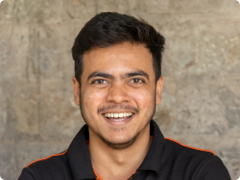
Rohit Ganguly, Content Marketer
Rohit is a content marketer first and a YouTuber second. He loves to interact with animals, feed them, clean his apartment, and spend time with friends and family. Curious by nature, he also enjoys literature, movies, meditation, and calligraphy.

 We respect your privacy. Your information is safe.
We respect your privacy. Your information is safe.
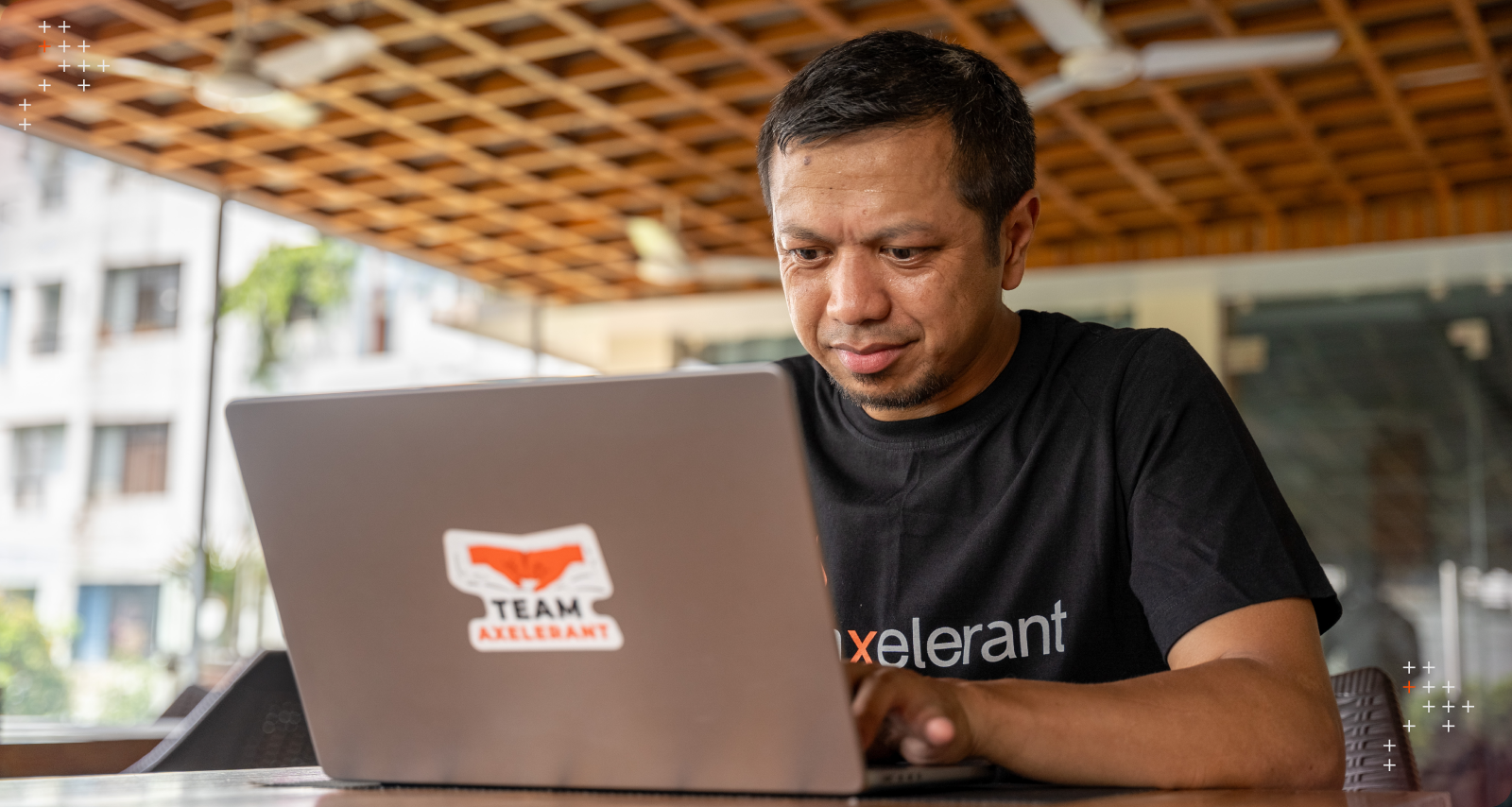

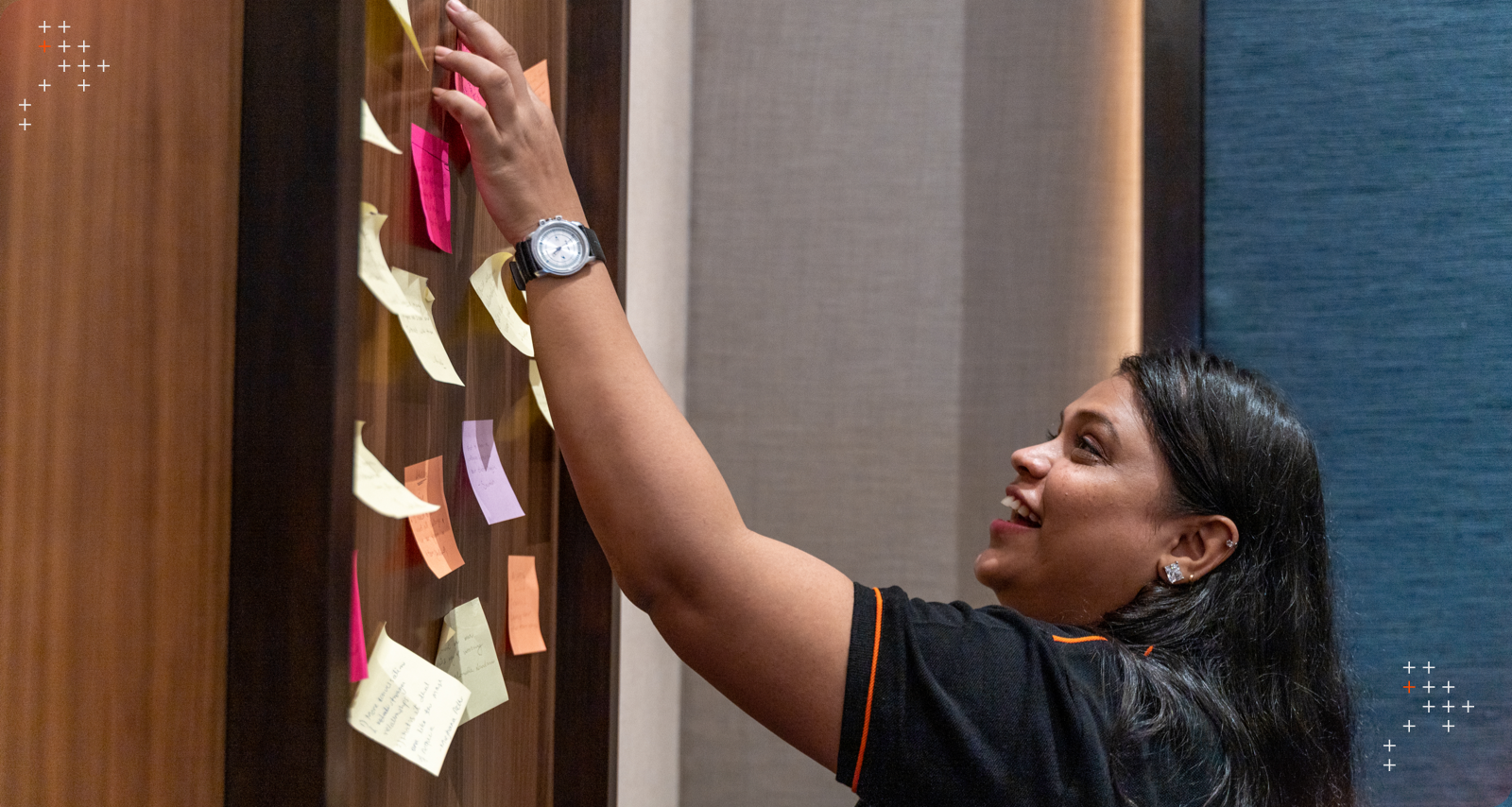

Leave us a comment